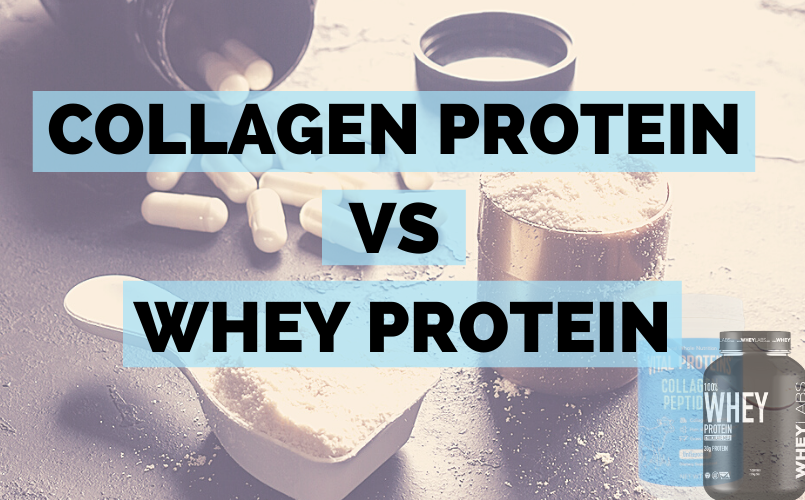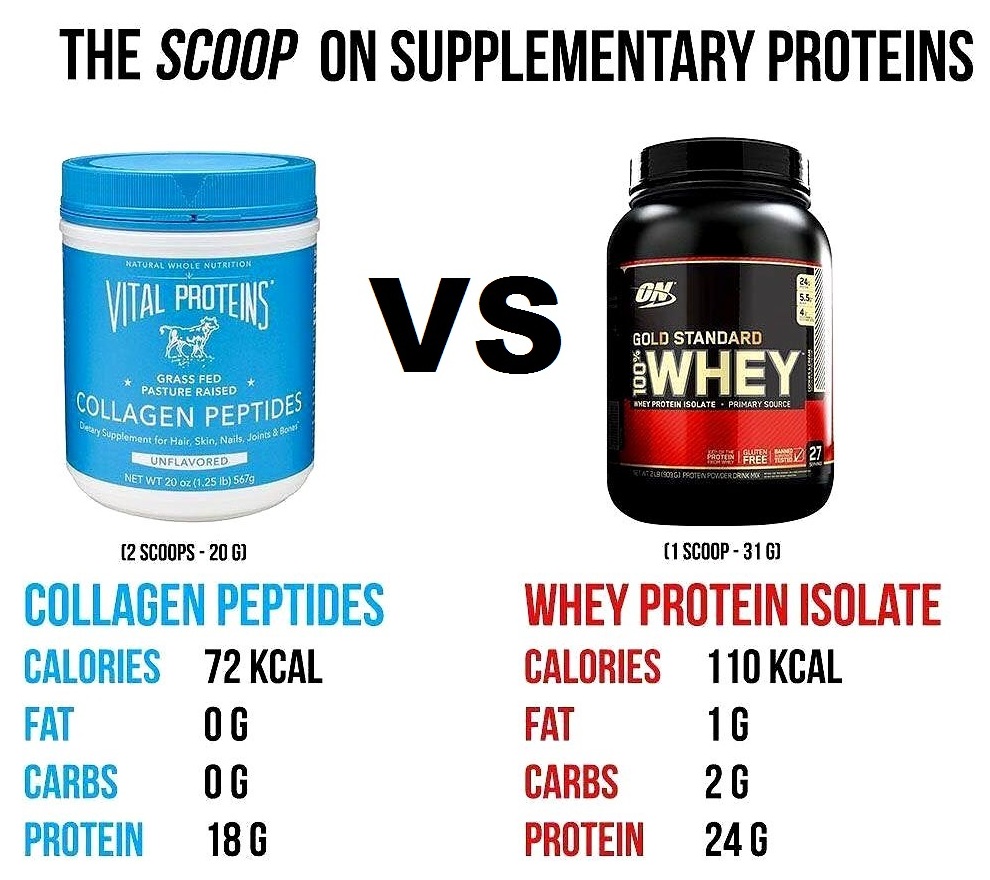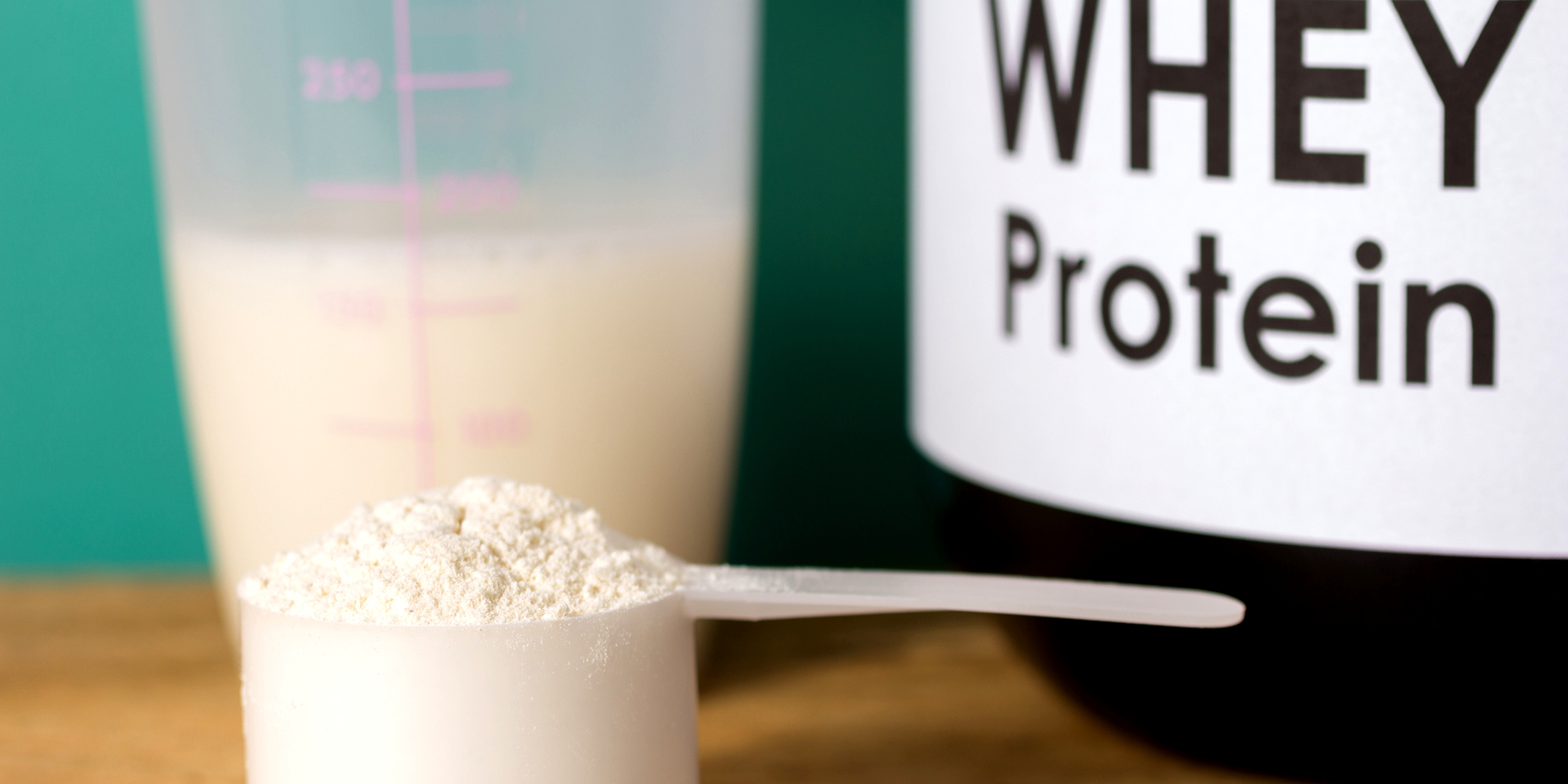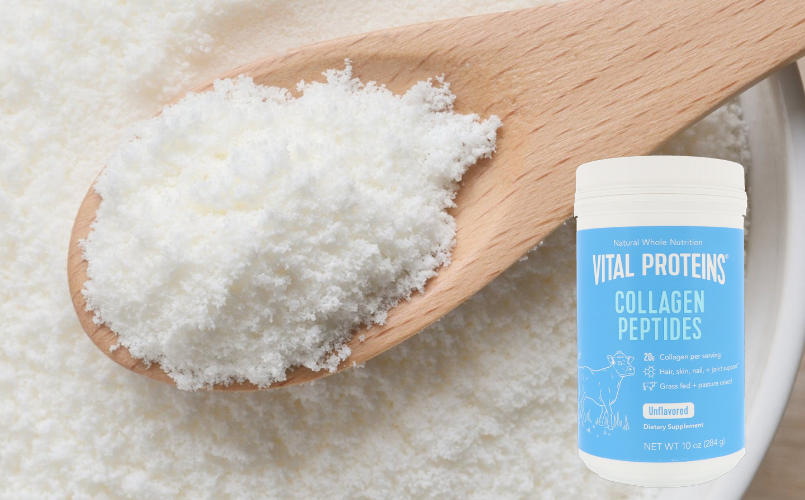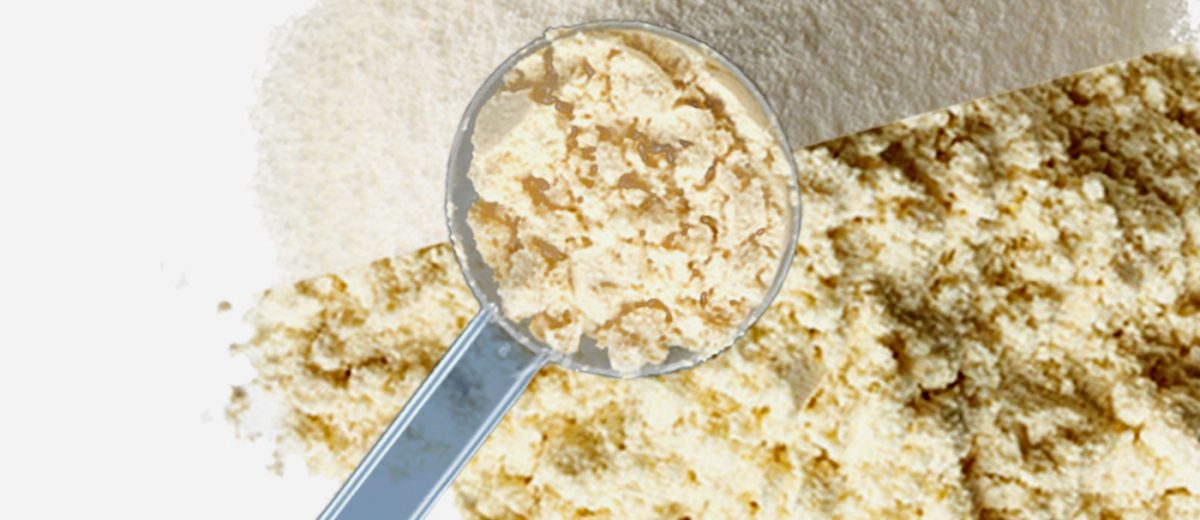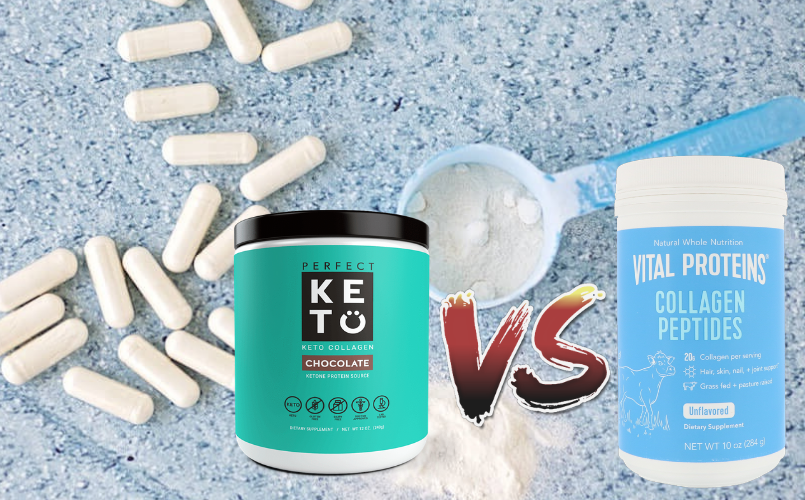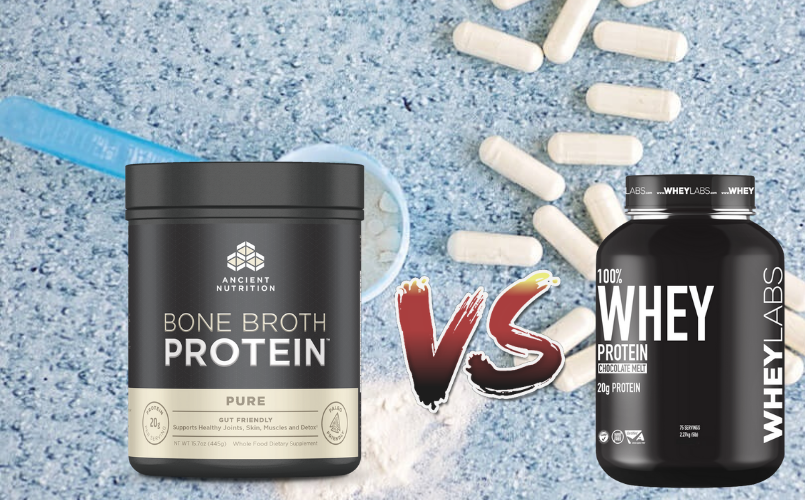Collagen protein powders have steadily increased in popularity over recent years. Some would even say it’s nearly as popular as whey protein, which heavily dominates the market.
Having said that, with all these different protein powder options, it can be difficult to make a single decision on which road to take. Do you choose collagen protein for its benefits to your bone and joint health, or do you take whey protein because it’s well known to help with muscle building?
Luckily, both vary greatly when it comes to effects, benefits, and results. While there are a few things that you’ll notice are the same, it’s certainly the standard results you’ll get from protein powder like weight loss or increase in lean muscle mass.
To help you make a better decision, we’ve tackled the differences between collagen and whey. Take a look at their individual advantages and perks below.
Table of Contents
What is the Difference Between Collagen and Protein?
People use a collagen protein supplement to improve their skin quality, heal their joints, decrease inflammation, and increase their bone density.
To put it simply, collagen is a type of protein. However, it is not a complete protein. That essentially means it doesn’t have a full amino acid profile. On the other hand, it still contains some non-essential amino acids like glycine, proline, alanine, and hydroxyproline.
Typically, when you’re looking at protein powders, most of the major choices you’ll come across are complete proteins. This includes grass-fed whey, pea, and even soy protein.
The lack of amino acids is typically why collagen is rarely referred to as a protein source. Despite that, one cannot argue the fact that collagen is a great source. Proline and Hydroxyproline, out of all the amino acids, are the most important for whole-body protein synthesis.
And besides, there are ways to make sure you get a full amino acid profile even when you’re taking collagen proteins. Sure, this is an extra step. But it’s well worth it when you consider the advantages to your well-being and physical appearance that It delivers. It’s no secret that exercise and diet are the basic tenets in the constant effort to keep your body healthy.
Pros & Cons of Whey Protein
Although these supplements dominate the market, they’re also largely frowned upon for various reasons. Some health buffs will tell you that they prefer WHEY over other choices simply because it’s the most effective option for gaining muscle.
This isn’t necessarily true as there are plenty of alternatives in the market that allow you to build muscle more quickly and more effectively than whey protein does.
That said, let’s take a quick look at the highs and lows of it.
- Has counteractive effects for cancer
- It is antimicrobial
- Helps control infections
- Usually has a high protein yield (an average of 25 grams per serving)
- Has a relatively good absorption rate – this means it’s already broken down, which allows it to absorb into your body quickly)
- Relatively better tasting compared to plant-based alternatives
- Convenient and allows you to get a good amount of your daily requirements in a single serving
- Usually high in calories, which can cause unexpected weight gain in the long run
- Contains varying levels of sugar and fat naturally
- Relatively expensive compared to whole food
- Some brands are not lactose-intolerant. This could lead to stomach distress and nausea, among other side effects, since it will most likely retain some amount of lactose
- Not good if you’re looking for overall nutrition. Typically contain nothing more than your standard protein content
- Can cause stomach distress and bloating even if you aren’t lactose intolerant
- Does not offer many advantages apart from what increased protein levels offer
Pros & Cons of Collagen
You might still be asking yourself: Is collagen a protein? It is. In fact, it’s one of the most abundant protein sources in both land and sea animals. More than that, it provides you with a host of health advantages that affect your outer and inner well-being.
That said, there are certainly upsides and downsides. It provides proline, an amino acid that promotes joint and cardiovascular health.
Take a look at the pros and cons below:
- Improves your overall bone health
- Boosts your joint health, which leads to better mobility
- It helps aid in ligament and muscle recovery better
- Helps in your body’s natural abilities to care for wounds
- Helps reduce fractures and osteoarthritis
- Helps maintain healthy blood sugar levels
- Improves your skin’s elasticity
- It can reduce the appearance of wrinkles and fine lines
- This leads to a more youthful appearance
- Improves skin dryness
- Can help with weight loss
- Helps you achieve glowing skin
- Improves your hair by making it stronger and shinier
- It also boosts the strength of your nails
- Boosts gut health
- Impacts on muscle protein synthesis
- Helps improve your immune system
- It offers a remedy to a leaky gut syndrome
- It doesn’t contain a complete amino acid profile
- May cause allergic reactions depending on the source of collagen
- The feeling of being overly full
- May leave a lingering bad taste
Can You Take Collagen and Whey Protein Together?
Although collagen is technically a protein, it isn’t a complete source of protein. That said, since there are plenty of collagen supplements in the market, you can definitely take it alongside whey protein. Combined with a healthy diet, this is ideal if you’re looking to get the combined results of collagen powder and whey protein powder.
Keep in mind that since collagen is still a protein, you will need to watch your daily consumption. Make sure you’re not going over your recommended daily dosage, or it could lead to kidney issues in the future.
Of course, collagen and whey together may not necessarily be the most effective supplemental source. While you may choose to take collagen purely for its health benefits, you can certainly choose other protein powders to partner with it.
For example, a vegan or plant-based protein powder that has more manageable amounts of protein, but with added nutrition can still help you achieve your bodybuilding or weight loss goals.
The most important thing to remember is to check your preferences. Make sure you’re comfortable with the effects of both sources before diving into this combination.
That said, most experts do recommend taking them together. This not only boosts your body’s anabolic state, but both powders actually play off of each other’s weaknesses and strengths beautifully.
For example, while it is not a full protein source, whey protein is. This means you’re getting your essential amino acids alongside some of the amino acids you can find in collagen that are good for your overall health.
What are the Side Effects of Taking Collagen?
There are no direct side effects of taking. However, there are some side effects that are usually caused by your body’s response to certain ingredients in the collagen powder you’re taking.
Take a look at some of the side effects you could encounter when taking collagen powder:
- Severe allergic reactions – some powders are sourced from shellfish or other animals. If you are allergic to certain animals, you may suffer from an allergic reaction. The key is to look for a specific source. If it isn’t listed, check the allergens listed. If you’re still unsure, bone broth is a good source that lets you know exactly what you’re getting.
- May leave a bad taste in your mouth – due to nature you may find that some brands leave a lingering taste in your mouth. This isn’t something we encourage and would suggest looking into brands that are known to be better tasting.
- Can make you feel bloated or overly full – while it effectively helps curb your hunger, some users have reported that they experienced feeling overly full or bloated after taking it. Reports of this instance are few and far between, though, so it’s important to listen to what your body tells you to be on the safe side.
Summary: Generally, there aren’t many reports regarding the side effects of taking. Like any other product in the market, it would depend on your body’s response to certain brands. I would suggest taking a look at reviews and choosing a well trusted brand to make sure you have all the necessary information before going through with your purchase.
What are the Side Effects of Taking Whey Protein?
Despite being the most popular protein powder source in the market, it is definitely notorious for its long list of potential and quite frequent side effects.
While you could argue that not everybody’s body will react the same way, it definitely has a longer and more closely-knit community of customers complaining about its side effects.
Take a look at those side effects below:
- Can cause stomach distress – whether you’re allergic to lactose or not, it is notorious for causing a long list of stomach upsets. This can include bloating and gassiness to more serious issues like stomach pain.
- It can lead to kidney failure – one of the most common issues with whey is that users often overestimate the amount of protein they need. And because whey powders are such a potent source of protein, it can often lead to kidney failure.
- High in calories, sugar, and fat – although the label may tell you otherwise, your powder could be causing you to gain weight you don’t want in the long run. This is because whey naturally contains sugar and fats, which could contribute to its calorie content. If you’re watching your calorie intake, this will make it more difficult for you to do so.
Summary: Overall, it is popular solely because it is the most researched protein powder in the market. That said, there are many good brands that offer a high quality product without risking the side effects. However, you might still experience bloating, nausea or stomach distress which is the most common side effect of whey protein regardless of brand.
Collagen Peptides vs Collagen Protein
This is a question I get asked all the time. What is the difference between peptides and protein? For the most part, they’re fairly similar.
They carry the same types of amino acids and eight of nine amino acids. However, there are a few key things that differentiate them from one another.
Here are my key takeaways:
- Collagen peptides are derived from collagen. They are short-chain amino acids and are usually found in the form of protein powder. Basically, your powders contain peptides. These absorb into your body to deliver all the good advantages that powders are known for.
- Collagen peptides are more easily absorbed by your body. This means peptides are more bioavailable. Since collagen is a form of long-chain amino acids naturally found in your body, it takes some time to fully enter your bloodstream and digest. Peptides, on the other hand, are readily absorbed by your body because they are essentially broken down.
Bone Broth Protein vs Whey
Like I said before, there really is no comparing both. They are both good sources of protein. Albeit, collagen does not have a complete amino acid profile. And they both have differences that make them independently suitable for different needs.
But what does that have to do with bone broth protein? Bone broth protein is a type of collagen. The only difference is that it’s mainly sourced from either cows or chickens. And most companies source their collagen from the hides and connective tissues of cows.
Unlike other supplements in the market, this means you’re getting a clear description of where your protein source comes from.
But generally, there are only two things you need to remember if you’re stuck choosing between bone broth protein and whey protein:
- What are your goals? Are you trying to gain muscle fast? Is overall nutrition a factor for you? Ask yourself these things and remember: WHEY is not as nutritional as bone broth protein. Yes, it provides you with a good source of protein, which helps build muscle or lose weight quickly, but it really doesn’t offer much more than that.
- Do you have a sensitive stomach? WHEY is generally more finicky when it comes to your stomach’s well-being. It usually causes gastric distress, among other stomach upsets. Bone broth protein, on the other hand, not only improves your gut health, but it’s highly unlikely that you will develop any side effects.
Can You Substitute Collagen for Whey Protein in Baking
Definitely, the good thing about powders is that it usually contains only one ingredient: collagen or collagen peptides.
This means you’re adding something into your cooking that has a good amount of protein, added nutrients, and advantages without having to worry about added sugar, fats, and allergies.
Can You Take Both Whey Protein And Collagen Protein Together?
Certainly, they are a good duo since they’re vastly different when it comes to their effects and advantages. They also play off each other’s strengths and weaknesses well so you’re able to fill in the gaps of each protein source.
UPDATED:
Absolutely! Collagen and whey protein can definitely be taken together, and their combination can offer various benefits, especially when it comes to supporting muscle growth, joint health, and overall wellness.
Whey protein, derived from milk, is a rich source of essential amino acids, particularly branched-chain amino acids (BCAAs) like leucine, which play a pivotal role in muscle protein synthesis. It’s highly regarded in the fitness community for its ability to promote muscle recovery and growth after exercise. Collagen, on the other hand, is the most abundant protein in the human body and is crucial for the health of our skin, tendons, ligaments, and bones. It’s rich in amino acids like glycine, proline, and hydroxyproline, which are vital for maintaining connective tissues and promoting skin elasticity.
The combination of collagen and whey protein can be quite complementary. Whey protein provides the essential amino acids necessary for muscle repair and growth, while collagen offers specific amino acids that support joint health and connective tissues. The synergy between these two types of proteins can be beneficial for individuals engaged in physical activity, as it supports both muscle recovery and the maintenance of connective tissues.
It’s important to note that when taking these supplements together, there isn’t evidence suggesting any negative interactions. Both serve different purposes in the body, and their combined intake doesn’t diminish the individual benefits they offer.
For optimal results, consider the timing of intake and individual goals. Whey protein is often consumed immediately before or after a workout to aid in muscle recovery, while collagen can be taken at any time since its primary focus is on overall connective tissue health. Additionally, be mindful of the overall protein intake from various sources to ensure it aligns with your specific nutritional needs.
Always consult with a healthcare professional or a nutritionist before beginning any new supplement regimen, especially if you have specific health concerns or dietary restrictions. They can provide personalized guidance based on your individual needs and health status.
In conclusion, the combination of collagen and whey protein can be a powerful addition to a wellness routine, offering benefits for muscle health, joint support, and overall vitality. As part of a balanced diet and fitness regimen, they can work hand in hand to support your health and fitness goals.
Can You Build Muscle With Collagen Protein?
Protein shakes are a whole different story when it comes to building muscle. Consuming protein, especially whey proteins, is a good way to hit up protein stores, but there are many studies that indicate that whey protein alone is not enough to build muscle. This is because most of the protein from these whey protein shakes is rapidly digested and used for muscle loss. The body requires time to break down the amino acids and retain the amino acid content.” says Dr. Manish Tiwary, the director, and head of the Department of Nutritional Sciences, Institute of Liver and Biliary Sciences, and Kidwai Hospital, New Delhi.
Marine collagen is an amazing protein that can repair and build new tissue in the body. Also, it is capable of relaxing muscles. One of the most popular sources of collagen in the food industry is soy. There are various benefits of consuming soy products. For example, eating soy can reduce the risk of certain cancers, reduce the risk of certain illnesses, and can even help the heart to stay healthy. Also, the key ingredients of soy are lysine, glutamic acid, and isoflavones. The intake of these key ingredients may also help you lose weight. Both soy and collagen are very good sources of protein but do you know that soy is actually an excellent source of collagen and contains 12 times more collagen than an egg. Threonine: improves fat metabolism, supports hair, skin immune system function, strengthens connective tissue.
Does Whey Protein Help Build Collagen?
Collagen is the main structural protein in skin, tendons, joint pain, and hair. Did you know collagen contains most of the proteins you need to stay healthy? While we have been taught to consume protein and the other important building blocks, our body actually does not produce these vital proteins itself. Your body must instead consume the proteins that our food sources produce.
Scientists have discovered that by eating a well-balanced diet that includes fish, poultry, and other sources such as eggs and dairy products, you can increase your intake of the dietary protein you need to maintain good health. What does that mean? It means you should be adding a little bit of whey protein to your daily diet. Whey protein contains 22 different proteins.
Does Collagen Protein Build Muscle?
As a lot of you already know, the benefits of taking collagen protein are endless. With so many different benefits, it’s no wonder that so many people want to see if it’s worth taking. The new generation of “fitspiration” — richly detailed, body-positive fitness images with only a handful of pills, protein powders, and scrunchies — is changing the way many of us think about fitness and health. As a result, collagen protein, often an afterthought in most workout plans, is hot for the first time in its 50-year history.
And for good reason, since it not only expands and strengthens connective tissue but also mimics testosterone, giving women the best of both worlds. But what exactly is collagen, anyway? Collagen is a protein that forms part of your connective tissue, which is responsible for helping you keep your muscles strong. Muscles stretch when you work them, but a healthy, well-functioning connective tissue keeps them from getting.
Can Collagen Be Substituted for Whey Protein?
These days, you will come across so many ideas related to health and fitness. Most people find these plans interesting and tend to try out various tips and tricks to lose weight. And when they do so, they feel so much energy that they tend to lose their appetite for eating junk food. People are also coming up with a good excuse to give up on eating pasta. One thing that they don’t want to do is to pay attention to their diet. That’s the primary reason why they are opting for natural products, which also have a good number of benefits.
After all, these products are cheaper compared to protein shakes and other protein products. And so, they are made up of mostly natural ingredients. What are those natural ingredients that make it a nutritional alternative? Pulse beans are the first choice of many who want to lose weight. It can be consumed on a daily basis to help you get rid of weight with less effort. You just need to use it in your diet in the right proportions.
Frequently Asked Questions
Is Collagen Easier to Digest Than Whey?
Collagen and whey protein exhibit distinct digestion characteristics, and the ease of digestion can vary based on individual factors and specific health conditions. Collagen is generally considered easier to digest than whey protein due to its unique composition and how it behaves in the digestive system.
Collagen is a structural protein abundant in connective tissues, skin, and bones. Unlike whey, collagen is primarily composed of specific amino acids, such as glycine, proline, and hydroxyproline, which are found in higher proportions. These amino acids are known for their role in supporting joint health, skin elasticity, and overall tissue integrity.
The digestive process of collagen involves breaking down these amino acids into smaller peptides, which are then absorbed more easily in the digestive tract. This efficient breakdown is attributed to the lower molecular weight of collagen peptides compared to the complex protein structure of whey.
Whey protein, derived from milk, contains a diverse array of amino acids, including essential and branched-chain amino acids. While whey is a high-quality protein source with notable benefits for muscle protein synthesis, its complex structure may require more extensive enzymatic activity during digestion.
Individuals with lactose intolerance or sensitivity may find collagen to be a more suitable option, as it is naturally free of lactose. Additionally, collagen’s compatibility with various dietary preferences, such as paleo or keto, makes it a versatile choice for those seeking protein supplementation with enhanced digestibility.
In summary, collagen is generally considered easier to digest than whey protein due to its unique amino acid composition and the efficient breakdown of collagen peptides in the digestive process. However, individual responses can vary, and consulting with healthcare professionals or nutrition experts is advised to determine the most suitable protein source based on specific health goals and considerations.
Who Should Avoid Collagen Protein Powder?
Collagen protein powder has gained popularity for its potential benefits in skin health, joint support, and muscle recovery. However, it is not suitable for everyone. Here, we outline specific groups of people who should consider avoiding collagen protein powder, along with scientific explanations for each case.
Individuals with Allergies
Fish, Shellfish, or Egg Allergies: Collagen supplements are often derived from bovine (cow), porcine (pig), marine (fish and shellfish), or egg sources. Those with allergies to these sources should avoid collagen protein powder to prevent allergic reactions, which can range from mild symptoms like hives and itching to severe anaphylaxis.
People with Certain Medical Conditions
Kidney Disease: Individuals with kidney disease should be cautious with collagen supplements. Collagen is a protein, and excessive protein intake can burden the kidneys, potentially worsening renal function. Those with chronic kidney disease (CKD) are often advised to follow a low-protein diet to manage their condition.
Liver Disease: Similarly, people with severe liver disease should avoid high protein intake, including collagen protein, as their liver may struggle to metabolize excess protein efficiently. This can lead to complications like hepatic encephalopathy, where toxins build up in the brain due to impaired liver function.
Pregnant and Breastfeeding Women
While collagen supplements are generally considered safe, there is insufficient scientific evidence to confirm their safety during pregnancy and breastfeeding. The ingredients and their effects on developing fetuses or nursing infants have not been thoroughly studied. Therefore, it is advisable for pregnant and breastfeeding women to avoid collagen protein powders unless specifically recommended by their healthcare provider.
Individuals with Specific Dietary Restrictions
Vegans and Vegetarians: Collagen protein is derived from animal sources, making it unsuitable for vegans and vegetarians. Those following plant-based diets should opt for other protein sources like pea or soy protein to meet their dietary needs without compromising their principles.
People Concerned with Heavy Metals
Some collagen supplements, particularly those sourced from marine life, can contain trace amounts of heavy metals like mercury. While these are typically within safe limits, individuals concerned about heavy metal exposure should choose collagen supplements that have been third-party tested for purity and safety or avoid them altogether.
Collagen protein powder offers various health benefits, but it is not suitable for everyone. People with specific allergies, medical conditions like kidney or liver disease, pregnant and breastfeeding women, vegans and vegetarians, and those concerned about heavy metals should consider avoiding collagen supplements. As always, it is essential to consult with a healthcare provider before starting any new supplement to ensure it is safe and appropriate for your individual health needs.
Final Thoughts
Overall, I can confidently say that while collagen and whey protein play off of each other’s strengths and weaknesses nicely, I’d much rather pair collagen with another protein source.
My professional opinion is that while whey protein is popular and easily accessible, it’s not always the best option in the market.
I’d much rather go for a plant-based alternative if it means I’m getting more balanced nutrition.
That said, collagen protein is a good source of protein, especially if you’re able to pair it with something that could help you make sure you’re still getting all your amino acids.
